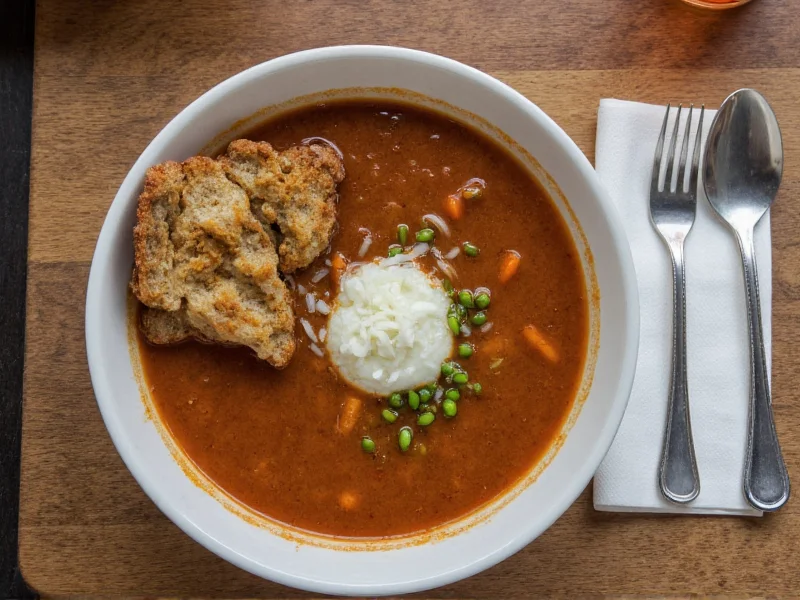Understanding what makes a Stone Soup Cafe unique requires exploring both its practical operations and philosophical foundation. These establishments go beyond standard restaurant models by embedding community values into their daily operations. The concept transforms the simple act of sharing a meal into a powerful social experience that addresses food accessibility while building neighborhood bonds.
The Origin and Philosophy Behind Stone Soup Cafes
The “Stone Soup” folktale originates from multiple European traditions, telling of a traveler who convinces skeptical villagers to contribute small amounts of their food stores to a communal pot—starting with just a stone in water. This narrative perfectly encapsulates the community-centered approach that defines modern Stone Soup Cafes.
Unlike conventional restaurants focused primarily on profit, these cafes operate on a “pay-what-you-can” or “suggested donation” model. This approach creates accessible dining options while maintaining dignity for all patrons. Many Stone Soup Cafes partner with local farms, food banks, and community organizations to source ingredients, reducing food waste and supporting regional agriculture.
Typical Features of Stone Soup Cafe Operations
Stone Soup Cafes share several distinctive characteristics that differentiate them from standard dining establishments:
| Feature | Description | Community Impact |
|---|---|---|
| Pricing Model | Pay-what-you-can or suggested donation system | Makes dining accessible regardless of income level |
| Ingredient Sourcing | Local farms, food recovery programs, community donations | Reduces food waste, supports local economy |
| Volunteer Involvement | Community members help with service and preparation | Builds social connections, shared ownership |
| Space Design | Open layout encouraging interaction | Fosters community dialogue and relationship building |
What to Expect When Visiting a Stone Soup Cafe
Visitors to a Stone Soup Cafe experience more than just a meal—they participate in a community ritual. Upon entering, you'll typically find:
- A welcoming atmosphere where everyone sits together at shared tables
- A simple, seasonal menu featuring locally sourced ingredients
- Transparent pricing information explaining the donation model
- Opportunities to volunteer or contribute beyond monetary donations
- Community bulletin boards featuring local events and resources
The dining experience often includes elements of education about food systems, sustainability, and community building. Many locations host regular community events, cooking classes, or discussion groups that extend the cafe's mission beyond mealtimes.
Finding and Supporting Your Local Stone Soup Cafe
While the specific name “Stone Soup Cafe” varies by location (some use “Community Table,” “Everyone Eats,” or similar names), you can identify these establishments by their operating principles rather than their names. When searching for a community-focused cafe near you, look for these indicators:
- Mission statements emphasizing food access and community
- Pay-what-you-can or sliding scale pricing models
- Partnerships with local farms and food assistance programs
- Volunteer opportunities for community members
- Nonprofit or social enterprise business structure
Supporting these establishments goes beyond patronage—consider volunteering your time, donating surplus garden produce, or helping spread awareness about their community impact. Your involvement helps sustain the “stone soup” philosophy that everyone contributes what they can and receives what they need.
Understanding the Stone Soup Cafe Movement
The Stone Soup Cafe model has grown from isolated community projects to an international movement with hundreds of locations worldwide. This expansion reflects growing recognition of food's power to build community while addressing food insecurity. Research shows these cafes create measurable social benefits including:
- Increased social connection among diverse community members
- Reduced food waste through creative ingredient utilization
- Enhanced food literacy through cooking demonstrations and workshops
- Strengthened local food systems by connecting consumers with producers
- Creation of safe, inclusive spaces for community dialogue
When evaluating whether a particular establishment embodies the true Stone Soup Cafe philosophy, look beyond the name to examine their operational practices and community impact. The most authentic locations prioritize people over profits while maintaining high standards for food quality and service.
What is the difference between a Stone Soup Cafe and a regular restaurant?
Stone Soup Cafes operate on community-centered principles rather than pure profit motives. They typically use pay-what-you-can pricing models, prioritize local and recovered ingredients, and actively involve community members in operations. Unlike traditional restaurants, their success is measured by social impact as much as financial sustainability.
How do Stone Soup Cafes remain financially sustainable?
These cafes use diverse funding streams including suggested donations from patrons, grants from community organizations, volunteer labor, and partnerships with local businesses. Many operate as nonprofits with additional revenue from catering, cooking classes, or special events that support their community dining programs.
Can anyone eat at a Stone Soup Cafe regardless of ability to pay?
Yes, the core principle of Stone Soup Cafes is providing dignified access to meals for all community members. While they typically operate on a suggested donation or pay-what-you-can basis, no one is turned away for inability to pay. The model relies on those who can contribute more to subsidize meals for those with fewer resources.
How did the Stone Soup Cafe concept spread globally?
The concept originated from the European folk tale but was adapted to modern community dining by organizations like the “Stone Soup Community Cafe” movement that began in the United States in the early 2000s. Successful models demonstrated how community dining could address food insecurity while building social capital, leading to adoption in communities worldwide seeking similar solutions.
What should I bring if I want to contribute to a Stone Soup Cafe?
Most Stone Soup Cafes welcome donations of non-perishable food items, surplus garden produce, or volunteer time. Some accept monetary donations to support their operations. Before bringing anything, check the specific cafe's website or call ahead to learn their current needs, as these can vary based on seasonal menus and community resources.











 浙公网安备
33010002000092号
浙公网安备
33010002000092号 浙B2-20120091-4
浙B2-20120091-4